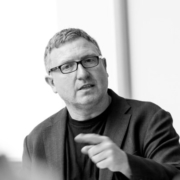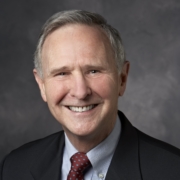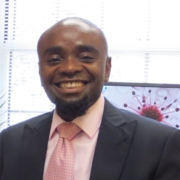Maren Elfert
UNESCO, the World Bank, and Education Development
Today we explore the relationship between UNESCO and the World Bank from the 1960s through today. My guest is Maren Elfert. She has recently published in the International Journal of Educational Development an article entitled “The power struggle over education in developing countries: the Case of the UNESCO-World Bank Co-operative program, 1964-1989.”
Maren Elfert is a lecturer in education and society in the school of education, communication and society at King’s College London.
Citation: Elfert, Maren, interview with Will Brehm, FreshEd, 234, podcast audio, March 29, 2021. https://freshedpodcast.com/elfert/
Will Brehm 1:27
Maren Elfert, welcome to FreshEd.
Maren Elfert 1:30
Thank you for having me.
Will Brehm 1:31
So, at the inception of UNESCO, how was it involved in education development?
Maren Elfert 1:38
So, UNESCO was founded in 1945 as a specialized agency of the United Nations for education and culture and science. So, it was involved in education development since the beginning. And in the post-World War II years, the context of decolonization, demographic growth, and increase in schooling created a demand for educational planning. And UNESCO had an educational planning division and focused on the planning needs of developing countries. And one of UNESCO’s educational priorities has always been literacy, which was a big part of UNESCO’s first educational flagship program, fundamental education. René Maheu, who was UNESCO’s Director-General since 1962, he always dreamt of a literacy campaign, and he actually thought that it might bring the Nobel Peace Prize to UNESCO. But literacy was highly politicized at the time during the Cold War, with countries like Cuba running literacy campaigns in the early 1960s. And it was not supported by the United States. So, the approach to literacy became a contentious issue also between UNESCO and the World Bank, and I think we’re going to talk about that a little bit more. Because the Bank was interested in education from a productivity perspective, and certainly not in enlightening the masses, so to speak.
Will Brehm 3:04
But UNESCO was. UNESCO was more about this; literacy was a way of empowerment and enlightenment and sort of making individuals feel as human as they can be.
Maren Elfert 3:16
Exactly and UNESCO had this human rights space. This humanistic, enlightenment-based approach to education. So, literacy was a big part of bringing these rights, making education a right, but it was very difficult for UNESCO because literacy did not really yield productivity, or it couldn’t be measured. It couldn’t be easily proved, and that became a difficult issue with the World Bank and also the UNDP, which was a funder of UNESCO.
Will Brehm 3:56
That’s an interesting question about the funding of UNESCO. I mean, so in the beginning, how was UNESCO funded as a member, as sort of a connection to the UN, how is it funded? How did voting work? What was the structure of the actual organization?
Maren Elfert 4:11
So, the funding was always a very difficult issue for UNESCO. It was always under pressure because it was notoriously underfunded. And the United States and several Western countries had early on decided actually already before UNESCO was created to channel funds for post-war reconstruction bilaterally rather than through UNESCO. So, the United States always favored bilateral aid, which meant that UNESCO’s budget would remain very limited. And UNESCO relied on extra-budgetary resources for its operational work, which made it very vulnerable. And there were also a lot of turf struggles between the UN organizations and different bodies. For example, with the Economic and Social Council (ECOSOC), also the UNDP, which funded UNESCO’s work in the first decades. And then UNESCO also has a governance system in which a small, poor country has the same voting power than a powerful, rich country. And in the two decades between 1947 and 1967, 70 countries from Latin America, Asia, and particularly Africa joined UNESCO. And those were the times of the non-aligned movement and later the new international economic order. And these newly independent countries of the South, they use the United Nations as a platform to voice their claims. And you can imagine that a lot of conflict arises in an organization that has such diverse membership. And so that was often used by conservative forces, for example, in the United States to construct UNESCO as a politicized organization that’s prone to communist influence.
Will Brehm 6:04
And in fact, America did pull out of UNESCO, I guess it’s been twice at this point.
Maren Elfert 6:10
Yes, absolutely. So, the first time the United States pulled out in 1983. And that was when UNESCO had this, there was this new international economic order debate at the time. And the director-general of UNESCO was the Senegalese, Amadou-Mahtar M’Bow, and he was very interested in participating in this debate and contributing to this debate. And so, UNESCO’s contribution was this MacBride Commission, which was named after the Irish Nobel Peace Prize awardee, Seán MacBride, which came up with a new international communication order. And the idea was that the developing countries would be less dependent on the Western news agencies and the Russian news agency. And this report also anticipated some problems that we see today about the commercialization and monopolization of the news agencies. But that it was used by the United States, it was opposed by the United States. They said that it was going against freedom of speech and then withdrew from UNESCO in 1983. Or maybe it was 1984. It was intentional. The scholarly literature there is consensus that it was intentional and that it was ideologically driven by these ultra-conservative forces.
Will Brehm 7:53
And when did America leave again, in UNESCO?
Maren Elfert 7:57
Yeah, so then it left again in 2011. So, it came back under the George Bush, Jr. Administration. And then left again, when the General Conference of UNESCO adopted Palestine as a full member of UNESCO. And since then, the United States stopped paying their membership dues. And then, a few years later, they pulled out completely. And of course, this is very, very difficult for UNESCO because it meant that 30% of its budget was gone. And for an organization that has a very, very small budget in the first place, that was really dramatic. And it also paved the way for the increasing private influence in UNESCO and the tied money because UNESCO, to be operational, needs to look for funds. But many of those funds are tied to certain specific projects that the countries are interested in. So, it ultimately weakens UNESCO.
Will Brehm 9:27
Okay, so that’s the very brief overview of UNESCO’s work in education development, some of the big ideas like literacy, some of the problems with sort of precarious funding, the sort of politicized nature of it, the sort of equal voting rights that different member states have inside the organization. Now, let’s turn to the World Bank as another big player in education development. How did the World Bank first get involved in education development?
Maren Elfert 9:58
Right, so the World Bank was created in 1944 at the Bretton Woods Conference, and it was more known at the time as the International Bank for Reconstruction and Development, and it was endowed with the mandate of financing the reconstruction of war-devastated Europe initially. But then, in the 1950s, the World Bank expanded its lending activities towards the newly independent developing countries of the South and funded infrastructure projects such as roads, dams, and industrial production and things like that. But then, in the early 1960s, when education gained prominence as a pillar of economic growth, the Bank started paying attention to education and granted its first educational loan in 1962 to Tunisia. And there were several factors at play why the World Bank went into education. The Bank’s educational investments were geared towards manpower and economic development in member countries underpinned by human capital theory and the recognition of the third factor, the residual factor. And the move into education was also related to the foreign policy priorities of the United States because the Kennedy administration promoted international development as a foreign policy issue and had identified aid and education as important tools to expand American influence and prevent communist influence in the countries of the so-called “third world”. And the Kennedy administration played an instrumental role in launching the United Nations Development Decade in 1960. And the World Bank was, as Kennedy himself said, the chosen instrument of this mission. So, that was also an important factor, and moving into education was also, to some extent, a public relations move because it looked better. It looked more like the Bank was helping people, right?
Will Brehm 12:09
I can understand why it would look good for some bankers to move into education. It looks like charity in a sense. But why did the US have such influence in the World Bank? I mean, the World Bank is the World Bank. It is a global institution with many different member states involved. So, how did the US gain so much power inside that institution?
Maren Elfert 12:33
Yeah. I mean, the World Bank has always been highly influenced by the United States. You know it’s been created in the United States, the United States was the dominant power after the second world war, it’s based in the United States, very very close to the White House, some of its presidents -well, the first for sure- were Americans, and a lot of its staff was also American. And then during the McNamara years, the Bank started to open up also to more international staff, but even those people were trained usually in American universities, and they were very often they came out of these economics of education and economics programs. So, there’s been always a very strong American influence. And the World Bank is not as democratically organized as UNESCO with every country has the same voting power. The World Bank is organized in a different way that the more you pay in, the more say you have.
Will Brehm 13:59
Oh wow. So, for instance, if America was the biggest contributor to the World Bank, they would have more votes in the end.
Maren Elfert 14:08
Yes.
Will Brehm 14:09
Right. Okay, and so how is the funding sort of situated in a sense in the World Bank? I mean, are they earning a lot of money from interest from loans that they’ve previously given out, or are member states contributing to the budget of the World Bank? How does the funding work?
Maren Elfert 14:25
So, member states contribute to the budget of the World Bank, but the World Bank also makes money on Wall Street by selling bonds to investors. So, it has always been very much associated with the financial world of Wall Street. And although it formally belongs to the United Nations system, it’s always been reluctant about this membership to the United Nations. And in the agreement between the United Nations and the World Bank, there is also a clause regarding the independence of the World Bank. So, it was always a very reluctant member of the family of the United Nations.
Will Brehm 15:17
Right. Okay. So, here we have the World Bank, which is, it sounds like it’s almost swimming in money. It has much more money, doesn’t have to worry too much about its funding, has a governing structure that’s heavily dominated by the United States, is getting into education lending for issues of productivity. And you have this piece that talks about how the World Bank and UNESCO -which seems to be completely opposite in many ways from the World Bank- starting to work together, how did that happen? How did the World Bank and UNESCO begin working together in education development?
Maren Elfert 15:54
So, the World Bank started granting educational loans, but it had no expertise in education at the time. So, it was a pragmatic solution to work with UNESCO, which was the main authority for education in developing countries at the time. And it was also politically important for the World Bank to collaborate with other UN agencies, as the Bank knew that they were moving on other organization’s turf. And as there was increasing overlap and competition between UN and non-UN agencies when development took off with the first UN Development decade, collaboration between the UN agencies was the suitable thing to do. And it was also encouraged very much by the leadership of the United Nations. And the World Bank was also involved in the creation of the IIEP, the International Institute for Educational Planning, in 1963, and still has a seat on the governing board of the IIEP today. And that was the first example really, of this cooperation of the World Bank with other international organizations and the IIEP belongs to UNESCO. It’s a UNESCO institute. And the Bank supported the IIEP because it recognized the need for educational planners. But it was also a kind of goodwill gesture to UNESCO. And the Bank saw it as the first concrete measure of cooperation between the Bank and UNESCO. And then, the World Bank and UNESCO signed a memorandum of understanding in 1964 and established a cooperative program. And that’s what my paper is about. And at the operational level, a joint division was established: the education financing division (EFD), which was located in the premises of UNESCO. And it was staffed by UNESCO, but in agreement with the World Bank, especially the director had to be agreed upon by the World Bank. And it was funded 75% by the Bank, 25% by UNESCO. And actually, the World Bank started a similar program with the Food and Agricultural Organization (FAO), and later on in the 1970s also with the WHO.
Will Brehm 18:19
So, in a sense, the idea is that the World Bank is in partnership with these different organizations. And those organizations are providing most of the manpower. And then, the World Bank is providing most of the funding. That’s sort of the arrangement?
Maren Elfert 18:35
Exactly. That was the arrangement at the beginning. And the staff was highly qualified, highly paid at P5 level. So, that’s the highest professional salary level at the United Nations. And at its peak, the EFD had 35 P5 positions. As one of my interviewees said, it was the most powerful division in UNESCO. And the EFD was in charge of preparing World Bank educational loans.
Will Brehm 19:02
Hmm. Wow. Okay. So, the EFD, which sits inside UNESCO and is populated mostly with UNESCO staff. And those staff members are very highly paid and paid mostly from, 75% from the World Bank. They’re the ones preparing loans for education development for the World Bank. So, I mean, there’s a lot of institutional overlap here, you could say. And you could see how the World Bank might not like that arrangement so much.
Maren Elfert 19:32
Well, exactly. But when you say UNESCO staff -yes, it was, in a way, because UNESCO staffed this division. But it was staff that very much belonged to the field of the World Bank. I use Bourdieu’s concept of field for this paper because they were chosen to fit into this division to be able to do this work, right? So, there were some economists also, even some very qualified people, even former ministers who worked in this division. So, it was a real authority within UNESCO, but it was always perceived as an alien body, as a Trojan horse. Because it represented the World Bank, right? And a very particular, more instrumental approach to education, that the rest of UNESCO was not really interested in or was even opposed to. So, it was really an interesting arrangement, this kind of heteronomous field to speak with Bourdieu, within UNESCO. It was even based in the basement. Although that wasn’t meant as a bad treatment, because those offices are really very nice. But two of my interviewees talked about that and said, “You know, it was really an alien body in UNESCO, it was even in the basement.”
Will Brehm 21:12
So, obviously, that relationship isn’t going to work out, in a sense, right? So, how does it change? Like, obviously, something has to give if people even who were working there felt a little alienated.
Maren Elfert 21:25
Yeah. It changed a lot over the decades. Because initially, in the 1960s, there’s no question that UNESCO was the authority in education, and the Bank had a lot of respect for UNESCO. And you can see that from the correspondence that there was a very cordial tone, the staffers called each other by their first name, they shared information with each other. And from the memorandum of understanding, which gave UNESCO a lot of autonomy in principle, it’s clear that UNESCO tried to keep the World Bank in the role of a mere funder of education. And maybe UNESCO also thought it could use the World Bank for its purposes like educating the world. On the other hand, it was quite clear from the beginning, that UNESCO was working for the Bank, of course. And one of my interviewees clearly stated that “they were working for us”. So, I would say at the beginning, it was more of an equal partnership, but that changed quite dramatically in the 1970s, when the World Bank started to build its own resources, started to build intellectual capacity, and moved more into playing also a policy role and not only the role of a funder.
Will Brehm 22:48
So, you point to the 1974 education sector working paper. What did that do in this sort of longer history of the shift in the cooperative program?
Maren Elfert 23:00
So, in the 1970s, the World Bank expanded more towards a development agency. And the 1974 education sector working paper was a representation of that. And it was a turning point in the relationship between the World Bank and UNESCO because the paper revealed the World Bank’s claim to moving from a funder to an intellectual authority in education. It also revealed that the Bank moved even more onto UNESCO turf. For example, this report added the importance of social dimensions, to the mere emphasis on economic growth, it paid more attention to primary education than before. And UNESCO staffers were irritated by the paper because they hadn’t been consulted. And many people thought it was very arrogant. For example, Peter Williams, who worked for the British Overseas Development Institute for many years, he wrote a scathing critique of this report, which is actually a very interesting paper, it was published in 1975 in Prospects. It’s called ‘Education in developing countries: The view from Mount Olympus’. And so, he uses this metaphor for the World Bank, and he writes, “The trouble with living on the top of Mount Olympus is that you only have other gods to talk to”. So, Williams was particularly annoyed by the World Bank spreading the wisdom about the social dimensions of development because he said that many development experts have argued this all along without being listened to by the Bank. And Williams also criticized the sense of crisis that the Bank invoked in relation to education in developing countries. As in his view, developing countries have achieved much more than the World Bank gave them credit for. And this is something that we see time and again, this discourse of the crisis, right? Also, in the 2018, I think it was, World Development Report that the World Bank published on education it’s also this sense of crisis that’s being invoked. And not only by the World Bank, actually, it’s a very common thing to invoke a crisis to which that you can then offer the solution.
Will Brehm 25:25
Okay. So, the Bank is basically saying, “We don’t only want to be a funder anymore, we want to have some sort of intellectual authority when it comes to development projects, the planning cycle, we can be involved, much more than just developing loan agreements.” And then what happens in 1978? There’s the Bell Report. How did this sort of further change the relationship between the World Bank and UNESCO?
Maren Elfert 25:52
Up until the late 1970s, the Bank’s methodology was dominated by manpower forecasting, which was quite controversial also within the Bank. And World Bank staffers, such as Stephen Heyneman, who had been trained in the rate of return approach at the University of Chicago, lobbied for a change of methodology. And in your interview with Stephen Heyneman, he talks about that. So, the education director, Aklilu Habte, was open to this idea. And in 1978, established an external advisory panel on education, named after David Bell, Executive Vice President of the Ford Foundation, who was the chair of this panel. And the Bell Report recommended that the Bank should diversify its approach, and expand its investments to primary education, secondary education, higher education, and education research. So, that offered the opportunity for the World Bank to expand even more. To go into new fields. And the Bell Report opened up potential for increased collaboration between the World Bank and UNESCO, but it also provided a legitimization for the Bank to move away from UNESCO, of course. And so, the report was met with suspicion, let’s say, in UNESCO. In principle, the UNESCO people were quite happy with what the Bell Report was saying because they’ve always said, we need to do more also primary education, also higher education. But of course, they saw it coming, that the World Bank was now becoming more independent, let’s say, and doing their own thing.
Will Brehm 27:47
So, you know, how did this agreement, this cooperation program between UNESCO and the World Bank, finally come to an end? I mean, it feels like it was a slow 10-year period or so where it shifted away, and UNESCO and the World Bank got further and further apart. But how did it actually end?
Maren Elfert 28:08
So, in the 1980s, the relationship between the World Bank and UNESCO had turned sour. And the EFD had already declined in size. And UNESCO served basically as a consultant pool at that point, to the World Bank. But even at that, the World Bank turned more and more to external consultants as they were cheaper and more flexible. And many in the Bank felt that the cooperative program had become a burden. And it was, of course, politically delicate to end it. And that’s also why it dragged on because the relationship was already very difficult in the late 1970s. And then, there were other issues such as some personnel issues, there were a couple of EFD directors that had been hired by UNESCO without seeking World Bank approval, and one of them in particular was absolutely not qualified for the job. And so, there were these quarrels, you know, all the time. And then finally, in 1988, the World Bank president officially terminated the cooperative program in a letter. And the letter was very diplomatically worded, offering the prospect of collaboration in other fields, you know, such as science and technology. There’s always been talk also that UNESCO and the World Bank would collaborate more in the field of culture and things like that. So, yeah. So, they ended it in a diplomatic way. But ultimately, UNESCO was fired.
Will Brehm 29:44
So, given this historical relationship, do you see legacies of it today in the way in which the World Bank and UNESCO work together, or don’t work together? What’s so important about looking at this cooperative program, in other word?
Maren Elfert 30:00
I think the story is interesting because we see how the epistemic authority over education shifted from the educators to the economists. And from UNESCO’s more humanistic approach to an instrumentalist, rationalistic approach to education. And the rise of the World Bank, I would argue, led to a homogenization of the field of development, and the colonization of education by economics. And there are other examples, for later examples for this epistemic power that the World Bank had over UNESCO. For example, the Education for All (EFA) movement, which was launched shortly after the official termination of the cooperative program in 1990, where the organizations also worked together with other organizations as well. And that further contributed to homogenizing education for development. Because the World Bank prevailed with its push for universal schooling, which was underpinned by the World Bank’s rate of return studies. George Psacharopoulos who was very influential in the Bank at the time, despite the resistance of UNESCO that advocated for a broader approach to education, again including literacy and adult education. And so, also, in Education for All, UNESCO was overpowered by the World Bank. And then, today, the Global Partnership for Education, which is a very influential organization in education for development today, emerged from the World Bank -the World Bank’s Fast Track Initiative. And right now, actually, we also see a duplication of work between the World Bank and UIS, the UNESCO Institute for Statistics, in the field of learning measurement, in the context of Sustainable Development Goal 4. And interestingly, the UIS and the World Bank have just signed a memorandum of understanding which, -Clara Fontdevila’s work, she has worked on that. And so, does that sound familiar, right? So, the World Bank is again moving into this field of learning measurement and competing with an institute belonging to UNESCO.
Will Brehm 32:43
How do you understand the power of the World Bank and even the power of UNESCO in the world today, where there’s so many different organizations working in international development?
Maren Elfert 32:57
Yeah, that’s a great question. In my paper, I draw on Bourdieu’s concept of fields to analyze the story of the World Bank-UNESCO relationship because these organizations represented very different fields. As we said, the Bank belonged to Wall Street rather than to the United Nations system. And UNESCO, on the other hand, emerged from the internationalist movement that goes back to the League of Nations. And so, the two organizations represented very different ontologies. Internationalism, humanism versus this rationalistic, technocratic approach that the World Bank represents. And I think that even if we have a greater group of organizations today involved in education for development, and we also see a rise of multi-stakeholder groups right, such as the Global Partnership for Education, they all belong to the same field in a way. They are governed by the same logic and epistemology through isomorphic processes, and they reproduce similar technocratic practices and technologies. And the World Bank has always reached out, always expanded its role, and it is now in the era of SDG 4 prioritizing learning measurement, as I said. So, the Bank continues to pursue McNamara’s mission to measure the unmeasurable. And I argued in the paper that the World Bank was more autonomous as a field. To think with Bourdieu. In Bourdieu’s theory, the more autonomous a field is, the stronger it is. And fields strive for autonomy, as that allows them to generate their own values and norms, free from external influences. And pressure exerted by dominant fields can lead to heteronomy, that’s what Bourdieu calls it. Loss of autonomy of a field. And I think that’s what happened with UNESCO. The World Bank gained more autonomy because it was backed up by powerful forces -by the US government, by its alignment with capitalist logic, and also by the rise of economics as a discipline. The epistemic power that this discipline gained. And the economic, financial field extended its influence into education, forming a financial, intellectual complex -Joel Samoff has written about that- that has significantly constrained the thinking about education and development. UNESCO, on the other hand, has been weakened by the economic field that was brought into it by these external pressures. Individual autonomous experts, for example, have been replaced by technocrats in UNESCO. The lack of operational budget and the loss of American funding forced UNESCO to accept tied money that we already talked about and seek partnerships with the private sector. And I think that similar developments have occurred in other international organizations, such as the FAO, the WHO, and UNICEF. And more research needs to be done to understand these processes and how the UN system is being weakened and corrupted by these developments.
Will Brehm 36:28
Well, Maren Elfert, thank you so much for joining FreshEd today. It’s just such a fascinating topic, and I really hope more people will do historical research on development.
Maren Elfert 36:38
Yeah, I hope so too, including yourself.
Want to help translate this show? Please contact info@freshedpodcast.com
Related Guest Publications/Projects
The power struggle over education in developing countries
Mentioned
International Institute for Education Planning – IIEP
World Bank and UIS join forces to help countries measure student learning
Education in developing countries – The view from Mount Olympus
The UNESCO-World Bank Co-operative Program
World Bank’s fast track initiative
Global Partnership for Education
Introduction to Pierre Bourdieu’s theory of social fields
1971 Education sector working paper
The financial intellectual complex – Joel Samoff
Related Resources
The Cold War politicization of literacy: Communism, UNESCO and the World Bank
The financial crisis of UNESCO after 2011
The history and problems in the making of education policy at the World Bank 1960-2000
The privatization of education: A political economy of global education reform
Faith and credit: The World Bank’s secular empire
Technocratic and humanistic trends in education
The McNamara fallacy and the problem with numbers in education
Have any useful resources related to this show? Please send them to info@freshedpodcast.com









